NEURO-OPHTHALMOLOGist SOLUTIONS
Overcoming Visual Challenges after TBI
Integrative Care for Concussion / Traumatic Brain Injury Sufferers
in Ft. Lauderdale, Tampa and Orlando, Florida
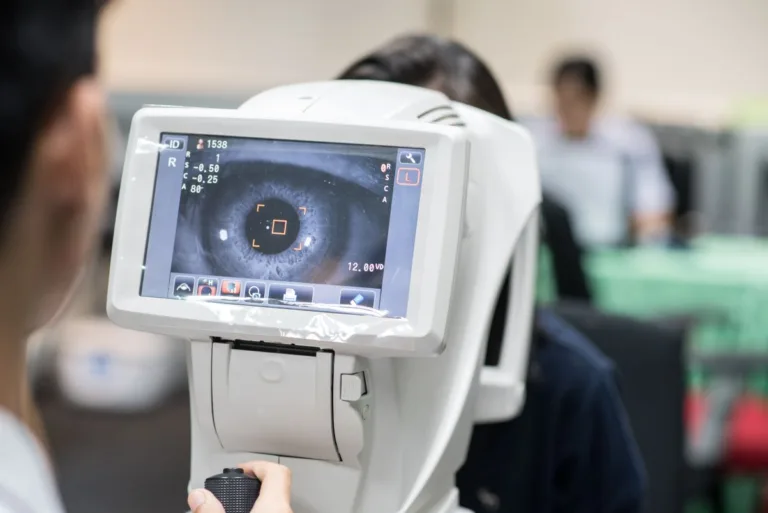
Vision Rehabilitation for TBI Patients: Collaborating with a Neuro-Ophthalmologist
Traumatic brain injuries (TBIs) can have a profound impact on a person's life, affecting various aspects of their physical and cognitive well-being.
Among the many challenges faced by TBI survivors, visual impairments and neuro-ophthalmic issues can significantly impact their quality of life.
However, there is hope in the form of neuro-ophthalmologists, specialized medical professionals who play a crucial role in diagnosing and treating visual problems associated with head injuries.
Vision Rehabilitation for Concussion Patients: Collaborating with a Neuro-Ophthalmology
Understanding the Role of Neuro-Ophthalmologists:
Neuro-ophthalmologists are highly trained experts who uniquely understand the intricate connections between the eyes, brain, and visual system.
They specialize in diagnosing and managing visual disorders caused by neurological conditions, including traumatic brain injuries.
By combining their knowledge of ophthalmology and neurology, these specialists provide comprehensive care to patients with TBI-related visual impairments.
Addressing Vision Challenges Post-TBI: Expertise of a Neurological Ophthalmologist
Diagnosing TBI-Related Visual Issues:
When a patient with a traumatic brain injury presents with visual complaints, a neuro-ophthalmologist thoroughly evaluates the underlying causes.
They assess various aspects of visual function, including visual acuity, visual fields, eye movements, and the integrity of the optic nerve.
They can determine the specific nature and extent of the visual deficits using specialized diagnostic techniques, such as neuroimaging and electrodiagnostic tests.
Restoring Visual Perception in TBI Survivors: Neuro-Ophthalmology Approaches
Common TBI-Related Visual Impairments:
TBI can lead to a range of visual impairments, such as blurred vision, double vision, decreased visual acuity, visual field loss, eye movement disorders, and difficulties with depth perception.
Neuro-ophthalmologists work closely with their patients to understand their specific challenges and develop tailored treatment plans to address their unique needs.
Meet Our Brain Therapy Expert : Restoring Vision After TBI
Treatment Approaches:
Neuroophthalmologists employ a variety of treatment modalities to improve visual function and enhance the overall quality of life for TBI patients.
These may include prescription glasses or contact lenses, prism lenses to correct double vision, visual rehabilitation exercises, medication to manage eye movement disorders, and surgical interventions in some cases.
By utilizing a multidisciplinary approach, neuroophthalmologists collaborate with other healthcare professionals, such as neurologists, neurosurgeons, and occupational therapists, to provide comprehensive care and support to their patients.
Restoring Sight, Restoring Hope: Neuro-Ophthalmology for TBI Patients
The Impact of Neuro-Ophthalmology in TBI Recovery:
Neuro-ophthalmology interventions and treatments can significantly impact TBI survivors’ lives. By addressing visual impairments, these specialists help patients regain their independence, improve their mobility, enhance their ability to perform daily activities, and boost their self-confidence.
Restoring vision also plays a crucial role in facilitating cognitive and emotional recovery, allowing individuals to interact better with their surroundings, engage in social activities, and participate in rehabilitation programs.
Neuro-ophthalmology is vital in recovering and rehabilitating individuals with traumatic brain injuries. Diagnosing and managing TBI-related visual impairments allows patients to regain their vision and overcome the challenges accompanying head injuries.
Their expertise, combined with a patient-centered approach, empowers TBI survivors to reclaim their lives, restore their independence, and look towards a brighter future filled with hope and improved visual function.
DID YOU KNOW?
One study found that a large percentage of people with traumatic brain injury (90%) or a stroke (86.7%) had issues with their eye movements. Specifically, problems with focusing and aligning the eyes were more common in those with traumatic brain injury, while crossed eyes and problems with a nerve called the cranial nerve were more common in those who had a stroke. The difficulty in moving the eyes in a coordinated way was similar in both groups.
Reference: Ciuffreda KJ, Kapoor N, Rutner D, et al. Occurrence of oculomotor dysfunctions in acquired brain injury: a retrospective analysis. Optometry. 2007;78:155-161
Read more: pubmed.ncbi.nlm.nih.gov
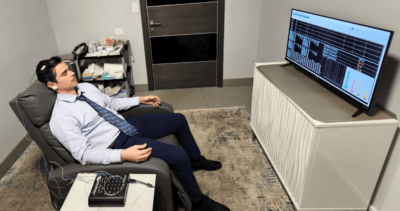
QEEG Brain Map Interpretation
In the world of neuroscience, one of the advanced tools used to understand brain function is the Quantitative Electroencephalogram (QEEG),

Meet Our No.1 Best Neuropsychologist in Tampa, FL Location
At Radius TBI, we pride ourselves on providing exceptional care for individuals suffering from traumatic brain injuries (TBI) and concussions.
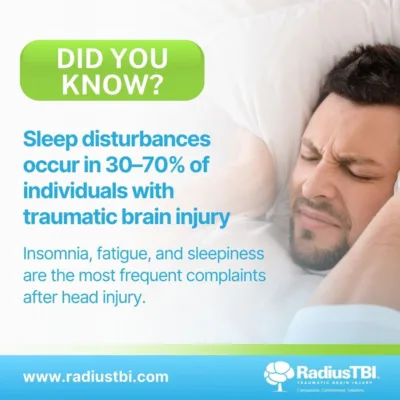
Sleep Disturbance
Did you know? Dealing with a traumatic brain injury (TBI) often means navigating a range of complications, one of the
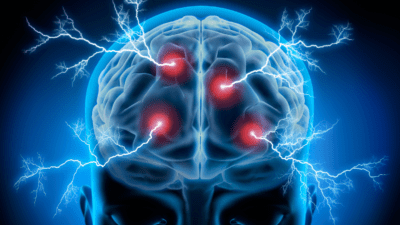
Understanding Routine EEG, QEEG, and Ambulatory EEG Tests
EEG, QEEG, and Ambulatory EEG are distinct forms of electroencephalography, each serving unique purposes in the diagnosis and monitoring of
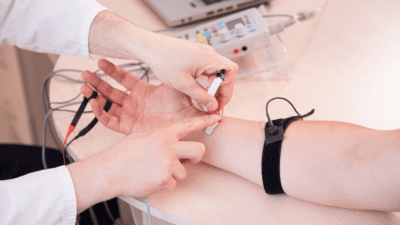
A Deep Dive into Electromyography (EMG Test): Decoding the Language of Muscles and Nerves
Electromyography (EMG) is a diagnostic procedure that plays a crucial role in unraveling the intricacies of the neuromuscular system. By
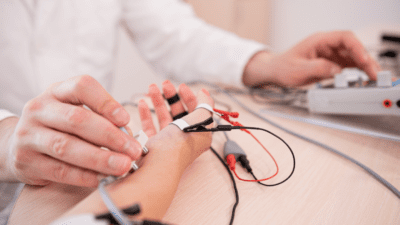
Precise Diagnostics, Proactive Care: Nerve Conduction Velocity NCV Testing Solutions in Florida
The Nerve Conduction Velocity (NCV) test is a diagnostic procedure designed to assess the speed at which electrical impulses travel

Your Comprehensive Guide to Seeking the Right Car Accident Injury Doctors in Florida
Car accidents can be life-altering events, leaving victims with not only physical injuries but also emotional trauma. It’s crucial to


